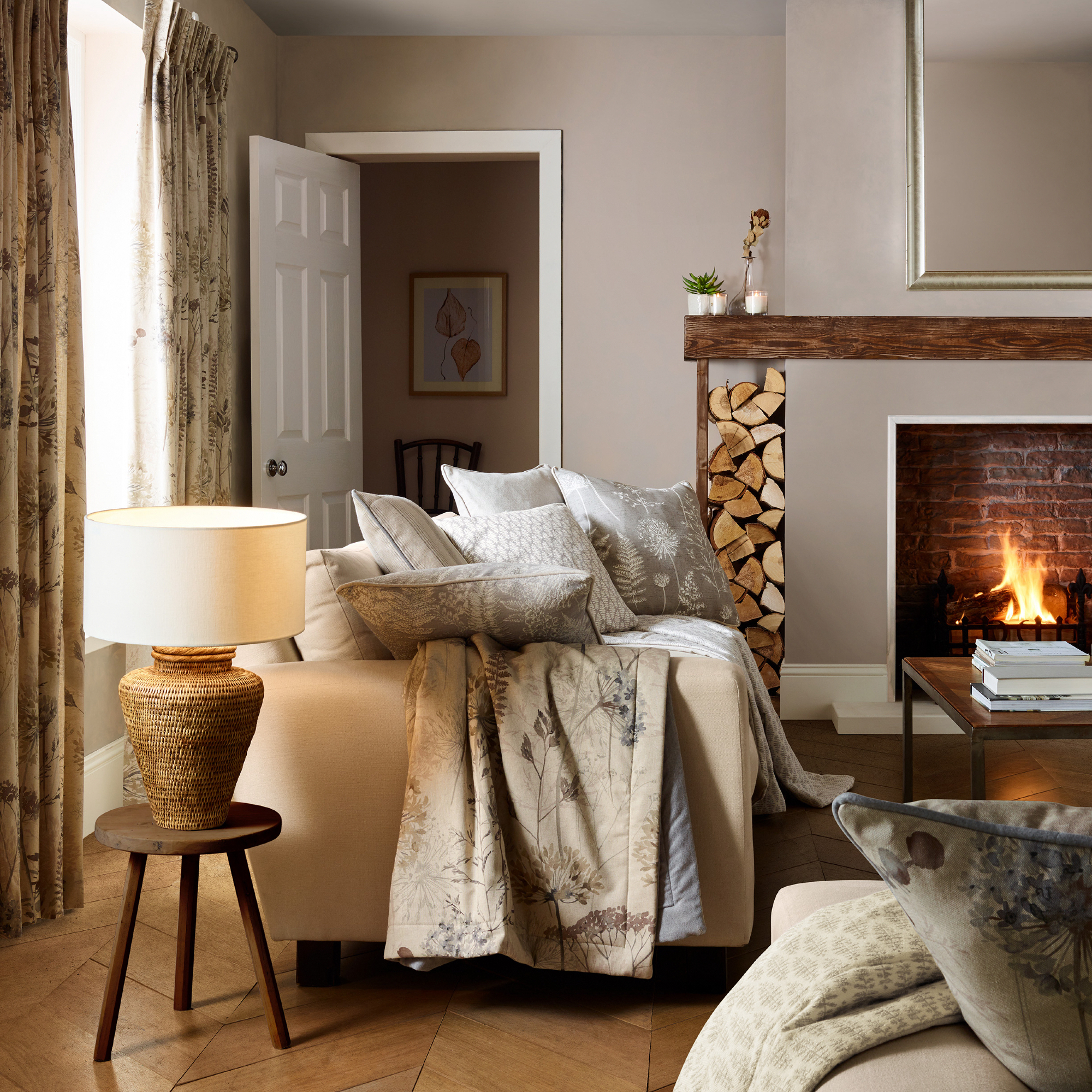
The age old question – should you change your curtains with the seasons – never seems to go away, and we swap out our duvets so should we follow suit with our curtains too?
During Victorian times curtains were heavier and with the lack of central heating, were much needed to keep in the warmth and the draughts out. When the seasons changed, they did tend to swap them out for lighter-weight designs. It was also a time to check them over, clean curtains and repair any tears that might have appeared during the winter.
These days, with our heated homes the need to change from a winter set to a summer set are long gone – or are they?
Should you change your curtains with the season?
With rising energy bills over the last 6 months, winter curtains have had a resurgence and this is something that might continue purely for practical reasons to save money on energy bills. As a result, those that don't change their curtains seasonally might decide to upgrade, or at least add a detachable lining for the winter months. This begs the question as to whether you should change your curtains with the seasons and have two pairs per room, but of course that costs money.
On the flip side, there's something rather lovely about changing up your curtain ideas, taking down the heavy winter curtains and hanging up linen and voil designs. Those lovely lightweight materials that gently sway in the summer breeze...
We weigh up the pros and cons of whether to change your curtains with the seasons.
The pros and cons of changing your curtains seasonally
What are the benefits of changing your curtains?
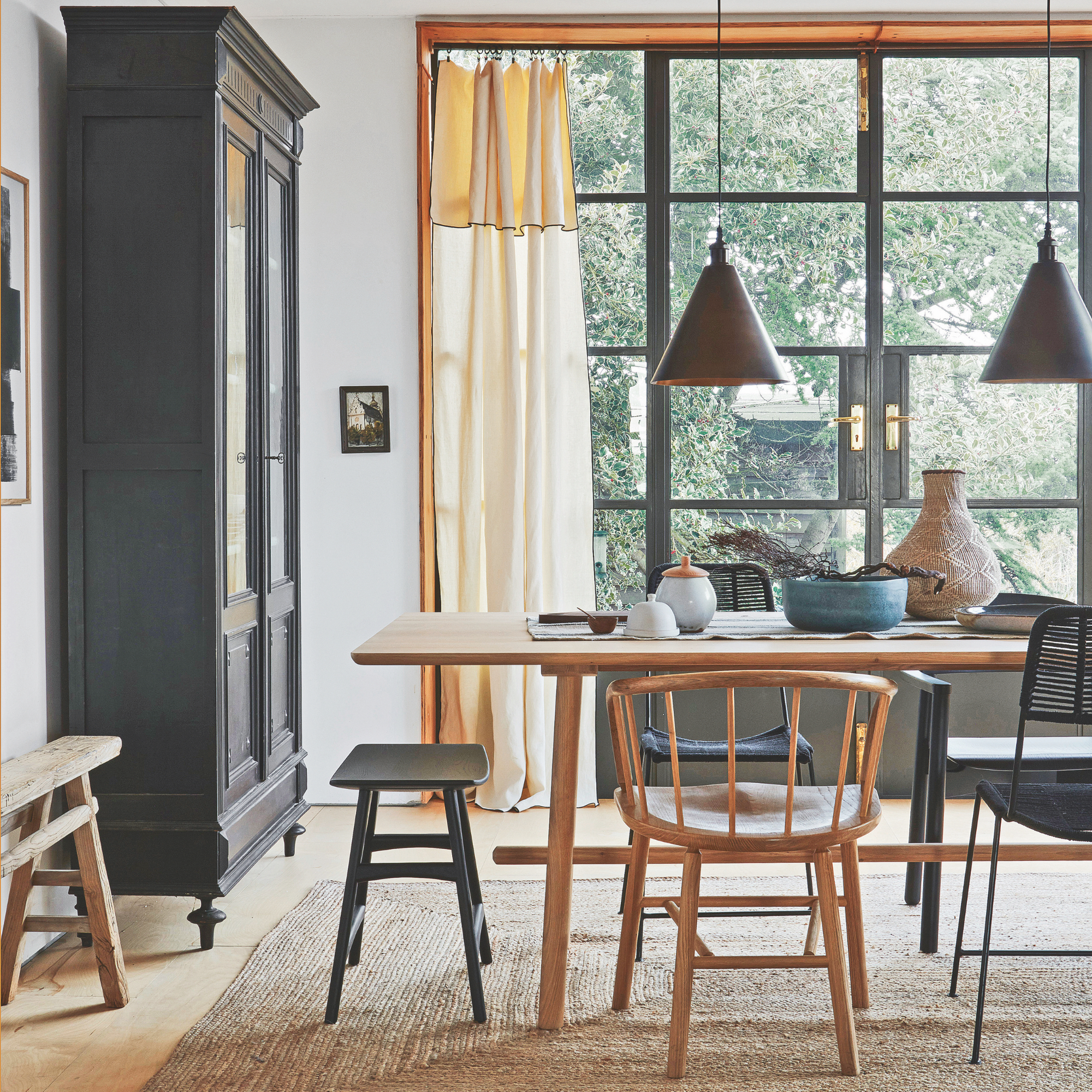
1. The will refresh decor for summer
In certain interior schemes, when the sun is pouring in and the view to the garden is lush, seeing a heavyweight curtain in dark tones will ruin the view, therefore in some rooms it might be worth changing them for a lighter option for spring and summer.
'To keep your home updated for the ever-changing seasons, it is important to think about restyling and refreshing the décor. We do recommend different curtain styles for different seasons to coincide with the weather and the atmosphere you want to create in your home,' says Natasha Painter, head of marketing, Curtains 2Go & Blinds 2Go.
2. Lightweight fabrics will lift a summer scheme

'You could change your curtains during summer and winter to reflect the drastic weather changes. For summer, lighter fabrics such as voiles or linen curtains are perfect for creating an airy, summer haven,' says Natasha.
And not forgetting colour schemes too – if you change your curtains with the seasons it allows you to refresh a scheme for the coming months. Beautiful bright prints that invoke the colours outside will do wonders for your interiors and you can store them away in autumn ready for the cooler months.
3. Summer curtains can help keep a room cool
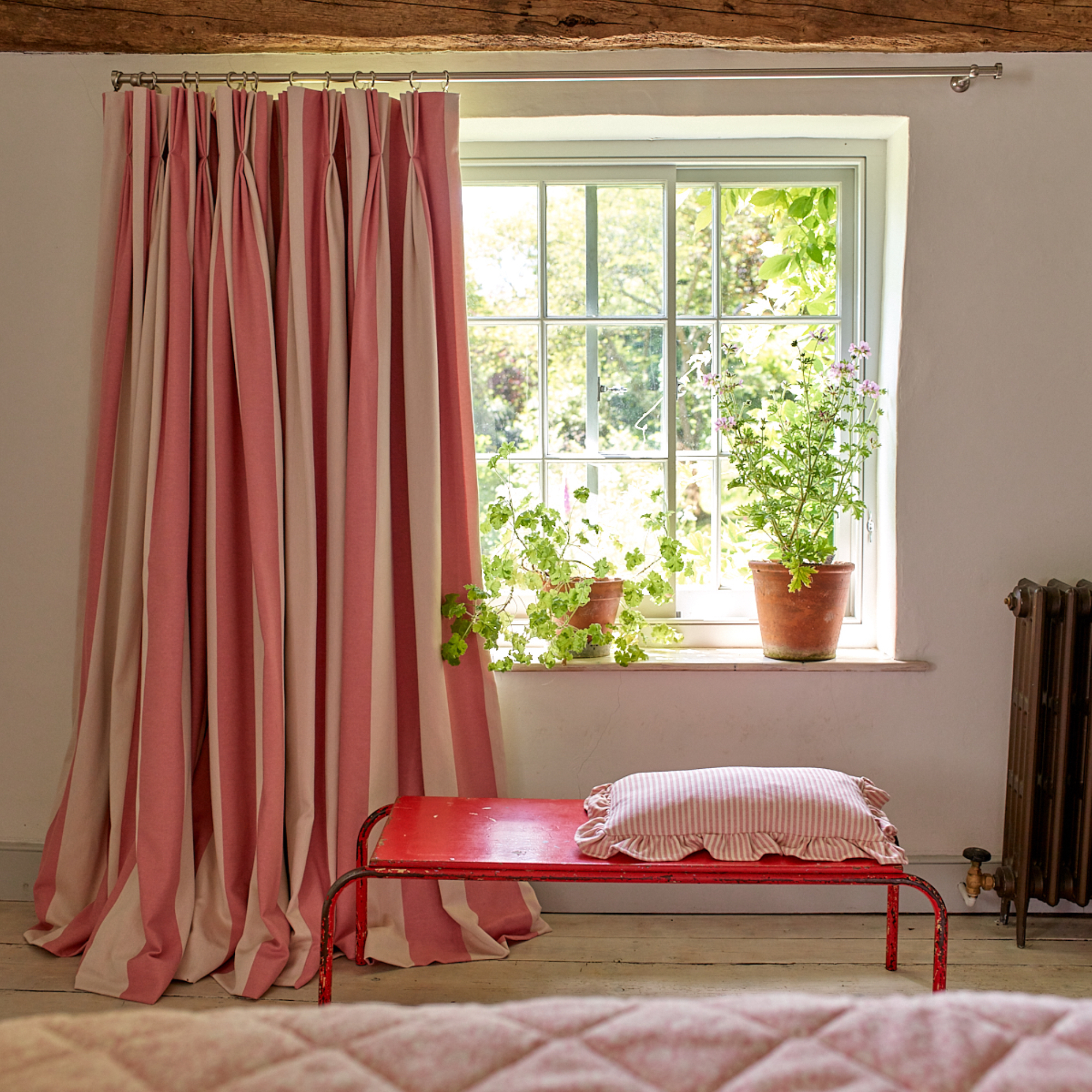
If you are considering switching out your curtains it is still a good idea to get them lined. While if you do have summer curtains up then a lining can help during those hot hazy days.
What are the benefits of keeping the same curtains up?
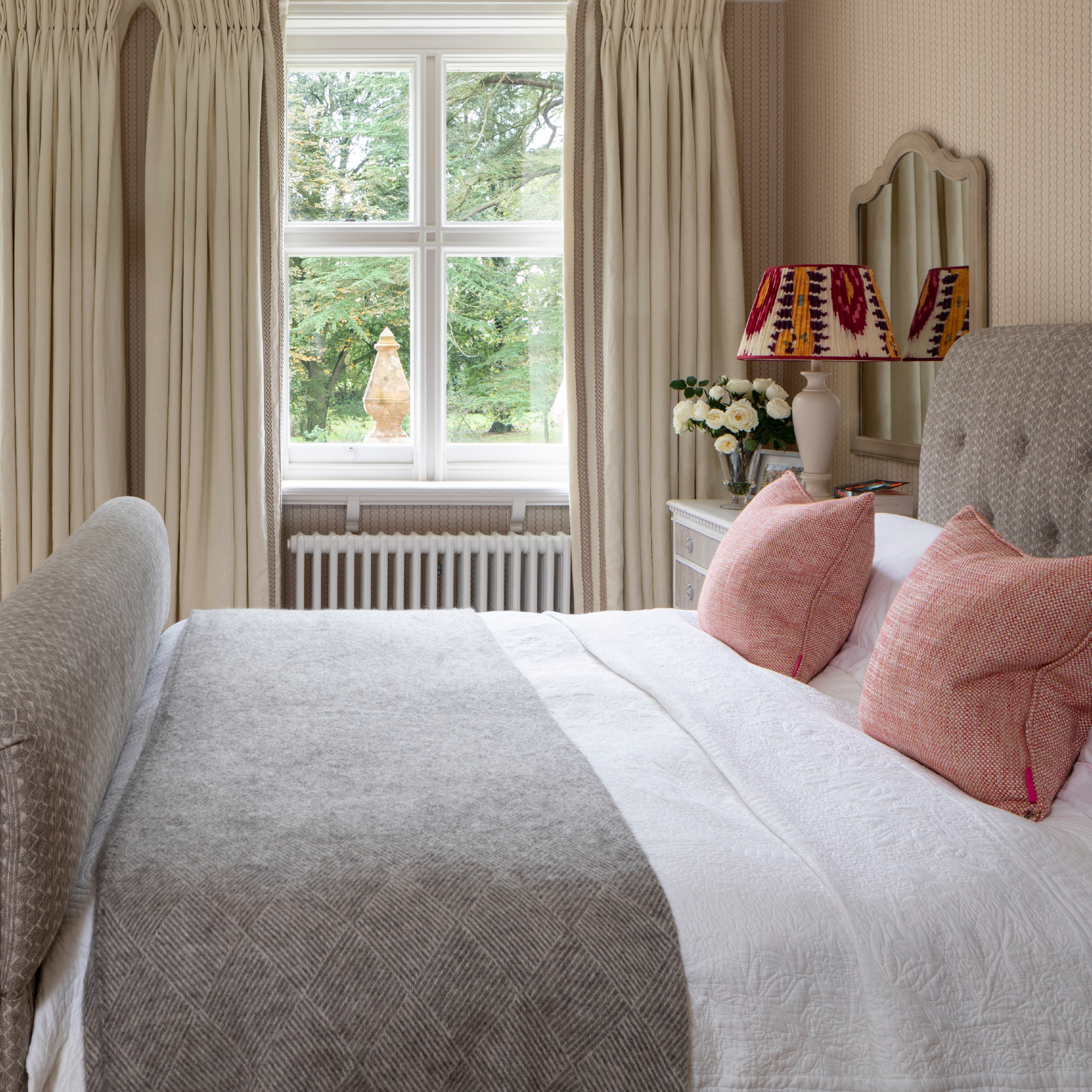
Winter curtains were essentially hung to keep out draughts coming in from front doors and huge sash windows. Thick fabrics were teamed with heavy linings can work wonders with winters in this country still being harsh.
Proper thermal curtains can still reduce heat loss from a warm room up to 10% and with the rising fuel costs that will no doubt be the same this winter, it's worth considering installing them in autumn. But are they ok to keep up all year round?
1. Blackout curtains are essential in summer

While our minds might drift to linens and similar for summer curtains, the reality for bedroom curtain ideas is that all that extra light in summer can make it harder to get some sleep.
'Blackout and thermal linings are great for bedroom curtains as they help to keep the room warm, increase energy efficiency and block out unwanted light promoting a good night's sleep,' advises Debbie Leigh, design manager, ILIV. So while you might not want the appearance of heavy curtains on a warmer day, you will definitely feel the benefits when you're not woken up by blinding light at 5am.
2. Lined curtains keep heat in and out
If we're in store for another heatwave, thermal curtains can work not just to keep heat in, but they will also help keep heat out. Most designs stop draughts but also reflect solar radiation, that means there really is not practical reason in terms of temperature to swap them over.
'Our made-to-measure curtains and blinds are available with a choice of linings that impact both form and function. One of the best ways to keep your home cool during a heatwave is by closing your curtains in the morning, blocking the heat from entering before the sun reaches full strength,' explains Tori Murphy, founder, Tori Murphy.
The overall verdict
With today's advances in fabrics it's possible to have the same curtains up all year round.
'Consider a reversible fabric for your curtains. This allows you to have the rich, darker colour facing inwards during the winter months and then it is easy to turn them around in the warmer months to embrace the lighter tones,' suggests says Alex Sherman, interior designer, Decorbuddi.
'Not many fabrics allow for this but is it possible to source them, especially with the help of an interior designer who can advise on the best fabric houses to use. Le Manach weaves for example offer great quality and gorgeous texture, as well as having these wonderfully different sides.'
You can layer opposite-weight fabrics together on the same rail like voiles and linens. Thermal curtains and detachable linings also make the case for keeping them up throughout the year too.
A disadvantage of not changing your curtains though is that you won't change the look of your scheme which might be something you love to do seasonally. Having two sets of curtains per room will be costly, but, once you have them you can store the unused pair away ready for the start of the next season.
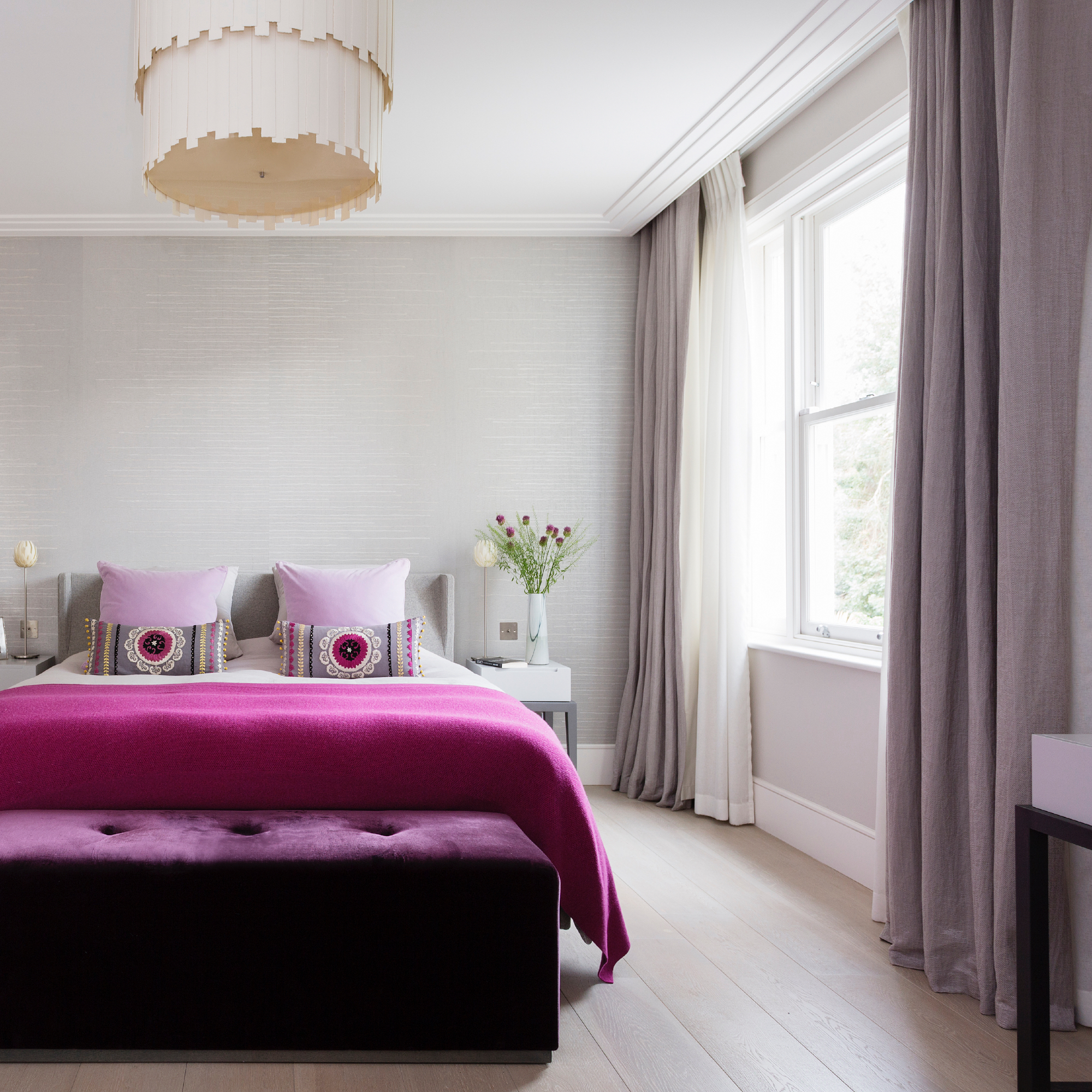
A compromise – team with a blind to get the best of both worlds
‘There are certain fabrics that are more suited to warmer or cooler months, and it can be a good idea to factor that in when choosing curtains, allowing a switch as the weather changes. However, beautifully made curtains are an investment and by opting for a timeless fabric, such as linen, will ensure your curtains work year round, evoking a cosy atmosphere in cooler, darker months and offering shade and a framework for your windows in warmer, lighter months,' says Caroline Milns, head of interior design, Zulufish.
'Layer your curtains with blinds to give greater flexibility, in the same way that a switch of fabric would, this extra level of detail at the window can provide privacy and shade, as well as an extra layer for warmth and cosiness. By setting the blinds into the ceiling coffers will ensure the window views remains seamless without unsightly attachments and cablings in view.'
FAQs
How often should you change your curtains a year?
If you do choose to change your curtains with the seasons then the best time to change them would be when the clocks change, so the end of March for spring and October for autumn.
Should you change your curtains for the winter?
Changing your curtains for winter can help to make your home more energy efficient. Good quality, lined curtains are worth the investment. They offer temperature control and privacy and their ability to help keep the cold air from seeping into the home makes them particularly useful during the autumn and winter months.
'Choose curtains with a thermal lining - this will greatly reduce the amount of heat that may escape your room via your windows in the winter,' says advises Debbie Leigh, design manager, ILIV.
Should I get dark or light curtains for the winter?
'The most important thing when selecting curtains for the winter months is the quality. Thermal-lined curtains are ideal for the winter months and offer many benefits,' says Debbie.
'When choosing the fabric for your curtains I recommend picking a colour that is slightly lighter or darker than your wall tone. If you prefer a contrasting colour, choose an accent colour from in the room, drawing a shade from a cushion or throw for example.
'Whatever colours you choose to combine, ensure that they are tonal, so they complement one another; mixing patterns and plains within a coordinated palette will create a harmonious scheme.'
'When looking at curtains, no matter what time of year, the colours and patterns you choose are really a case of personal preference, however, I always opt for neutral curtains if there's a lot of colour and pattern in the room already,' says Emma Deterding, founder and creative director, Kelling Designs.
'Not only does this help to balance the scheme, but if you have spectacular views out the window, then this will allow them to flow into the room making the room feel a lot larger. If you have a neutral design scheme, then introducing some colour and pattern through curtains will not only make a statement but will automatically draw the eye to the window, again making the room feel more spacious,'
What colour curtains are best for winter?
'Warm colours are often favoured for the winter months as they create a cosy feel - colours that evoke a sense of warmth include rich reds and oranges, golds, mustard, and berry shades,' adds Debbie.
'Use these colours in layers of soft furnishings, such as throws, cushions, and curtains and you’ll soon find your room feeling warm and snug creating a sense of comfort which is known to boost well-being.'







